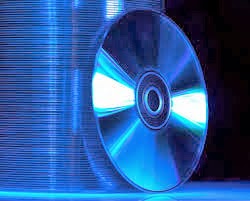In The Atlantic, October 2012 issue, there
is a fascinating article by Peg Tyre titled "The Writing Revolution."
[www.theatlantic.com/magazine/archives, 2012] She tells of a downtrodden public
school on Staten Island. It's students performed poorly on standardized tests
and over 70% dropped out before earning a diploma. The principal decided to
figure out why. The teachers hostilely defended their teaching methods and
almost accusing her of saying they were not smart enough to teach
well. Some speculated that the students were lazy or dumb. None of those
scenarios turned out to be the truth.
The short answer was that the students could not
write. They could make the letters and form a simple sentence but their
knowledge ended there. The words on the written page were just that: words.
They could look up the meaning of the words but that did not help in the
comprehension of the material or how to apply the knowledge they just read.
For several decades, teachers were told that
the best way to teach writing was to let children express themselves however they wanted on the written page. Full sentences, correct spelling and correct
grammar were not important. Self-expression and emotions were paramount. As a
result, diagramming sentences fell by the wayside and forgotten, parts of
speech never saw the light of day and punctuation was a dirty word. What
resulted as shown by this Staten Island school was that children could not
write anything but a simple sentence with the most important word coming first
because nobody had taught them how to do so. They could not build on that
single thought they had just written. They were missing the crucial
understanding of how language works.
In the beginning teachers were skeptical that
teaching students how to write essays was the answer to their students’
inability to learn. "They can do it (write properly) if they wanted to.
They just don't want to." One put his class to the test. They were
studying The Grapes of Wrath. He asked each student to
write a sentence beginning with "Although." A typical answer was
"Although Jim and John were friends."
The teachers in all subjects began showing students
how to use coordinating conjunctions like for, not, but or yet. The
students were taught explicitly how to turn ideas into simple sentences then
construct complex sentences from the simple ones by supplying the answers to
three writing prompts: but, because and so. The chemistry
teacher supplied the students with a main sentence and they were assigned to
write a paragraph using those words. "Sodium and chlorine are volatile
but.... Sodium and salt combined make salt because... Sodium and chlorine alone
may not be used for..." They taught the students how think analytically. A
history assignment went from "Write a post card telling what it was like
in the trenches during WWI" to "Describe the reasons for the start of
WWI.
The students were taught by all the teachers how to
use appositive clauses, recognize sentence fragments, how to find the main idea
of a sentence and how to form a main idea of their own. They learned various
parts of speech and why it mattered to use them correctly. The teaching did not
end with just writing. The students were taught to communicate verbally also.
Posters in classrooms showed talking responses like "I disagree with your
answer because" "Could you talk more about the idea you mentioned?"
"How did you reach that conclusion?" "My opinion is..."
The program began in 2009 after extensive research
and help from another private school in New York. Test
results have been slow to rise in some areas and have skyrocketed in others. Math and reading comprehension scores benefited
from the increased knowledge the children displayed because they were learning
to write. Confidence among the staff and students grew. Students who started
the program as freshman are now applying for colleges, an incomprehensible thought
two years ago.
Our American society is reaping the woes of not teaching our children how to write properly. Business leaders are lamenting the inability of interviewees to write
a paragraph about their chosen field. They have learned through bitter trials
that their companies have to teach their employees how to compose paragraphs
with a main theme, topic sentences, analytical thinking and a valid conclusion. Teachers took it for granted that their students knew how to
write but they did not write correctly because they were lazy. It is we, as a
people, who have lowered our standards, have let the language and brevity of text messaging
creep into our every day lives. We have weakened our position in the business
world because we cannot compete on the same levels as some other countries. It
is our job to educate our children. We do not expect them to know math so why
do we expect them to know how to write?























